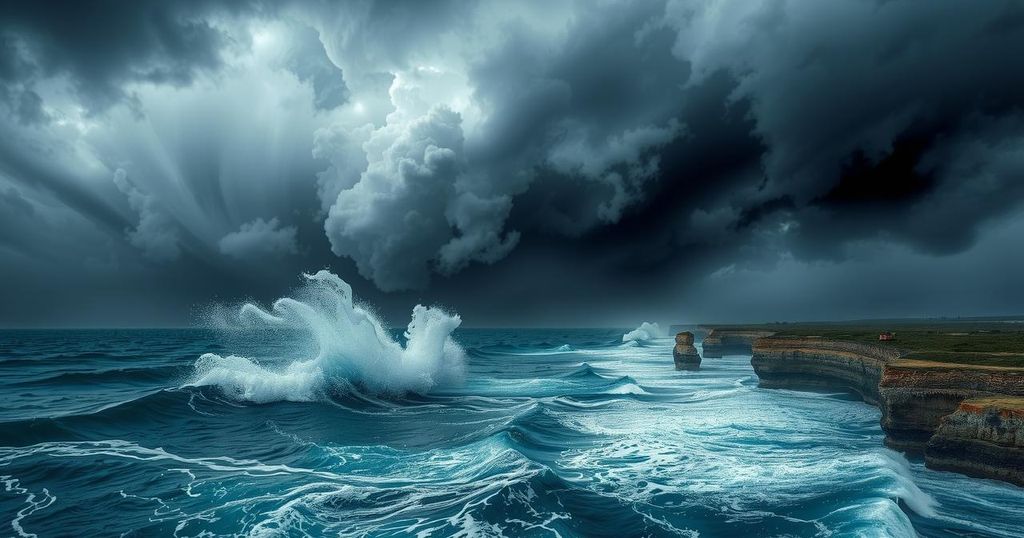Climate Change Intensifies Cyclone Chido’s Impact, Study Indicates
A study has revealed that climate change intensified Cyclone Chido, making cyclones of its strength 40% more likely in 2024 compared to pre-industrial times. Chido, a category four storm, inflicted significant damage in Mayotte, leading to fears of a rising death toll. Advanced modeling showed that wind speeds increased due to global warming, raising concerns about the future intensity of tropical storms.
A recent study by scientists at Imperial College London has indicated that climate change has played a significant role in intensifying Cyclone Chido as it approached the Indian Ocean archipelago of Mayotte. The preliminary findings reveal that, under current climate conditions of 2024, cyclones of Chido’s magnitude are now 40 percent more likely compared to pre-industrial times. Cyclone Chido, classified as a category four storm—the second highest on the scale—created unprecedented damage upon making landfall in Mayotte, where a substantial portion of the population reside in vulnerable makeshift housing. The storm’s trajectory further exacerbated the impact, leading officials to predict a potential death toll that could reach into the thousands.
The researchers utilized advanced computer modeling techniques to compensate for the lack of extensive real-world data on past cyclones. Their analysis concluded that the wind speeds associated with Cyclone Chido were higher by approximately three miles per second in comparison to pre-industrial climate conditions. Specifically, the study stated that climate change “uplifted the intensity of a tropical cyclone like ‘Chido’ from a Category 3 to Category 4.” In contrast, France’s meteorological agency has refrained from directly linking Chido’s strength to global warming, but acknowledged that warmer oceans, a result of human-induced climate change, have led to more violent storms. As average global temperatures have risen by nearly 1.3 degrees Celsius since the pre-industrial era, scientists continue to warn that these warming trends contribute to an increase in the frequency and severity of extreme weather events, including tropical storms.
The implications of Cyclone Chido underline a critical intersection between climate science and real-world events, bringing attention to the urgent need for climate action to mitigate further extreme weather outcomes. This cyclone’s significant devastation serves as a reminder of the vulnerabilities many communities face in the wake of climate-induced disasters, emphasizing the increased need for resilience and preparedness in the face of changing environmental conditions.
The urgency of addressing climate change has been underscored by its visible effects on extreme weather events, particularly in tropical regions. Cyclones, which are characterized by their intense wind speeds and damaging potential, have shown a marked increase in severity in recent years. Studies indicate that as global temperatures rise due to climate change, the frequency of such destructive cyclones is also expected to rise. The linkage between a warming climate and advanced cyclone modeling serves as a focal point for researchers aiming to assess the impacts of historical climatic changes, as exemplified by the incident of Cyclone Chido in Mayotte.
In conclusion, the case of Cyclone Chido illustrates the undeniable connection between anthropogenic climate change and the increasing intensity of tropical storms. This cyclone’s classification as a category four storm indicates a substantial escalation in its destructive capability, directly correlating to rising ocean temperatures and atmospheric conditions attributed to global warming. As scientists continue to analyze the data, it becomes increasingly clear that proactive measures are essential to mitigate the impacts of such extreme weather phenomena in the future.
Original Source: www.france24.com




Post Comment